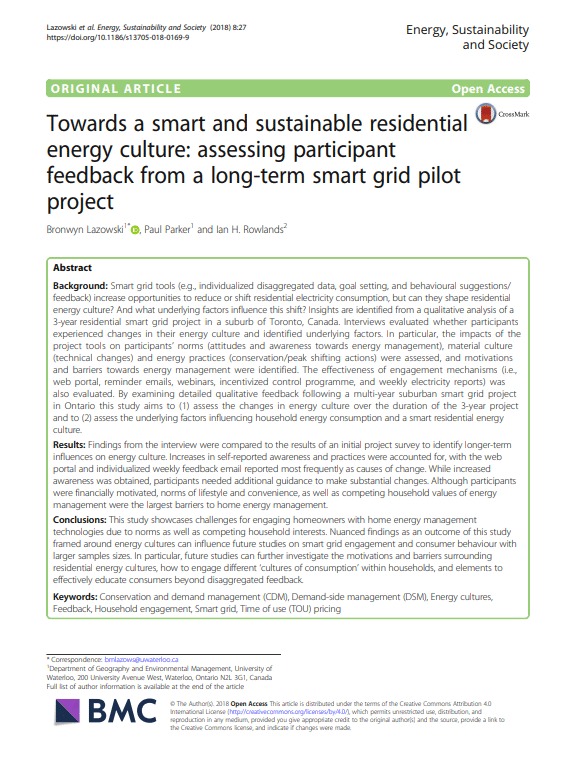
Smart grid tools (e.g., individualized disaggregated data, goal setting, and behavioural suggestions/feedback) increase opportunities to reduce or shift residential electricity consumption, but can they shape residential energy culture? And what underlying factors influence this shift? Insights are identified from a qualitative analysis of a 3-year residential smart grid project in a suburb of Toronto, Canada. Interviews evaluated whether participants experienced changes in their energy culture and identified underlying factors. In particular, the impacts of the project tools on participants’ norms (attitudes and awareness towards energy management), material culture (technical changes) and energy practices (conservation/peak shifting actions) were assessed, and motivations and barriers towards energy management were identified. The effectiveness of engagement mechanisms (i.e., web portal, reminder emails, webinars, incentivized control programme, and weekly electricity reports) was also evaluated.
By examining detailed qualitative feedback following a multi-year suburban smart grid project in Ontario this study aims to (1) assess the changes in energy culture over the duration of the 3-year project and to (2) assess the underlying factors influencing household energy consumption and a smart residential energy culture. Findings from the interview were compared to the results of an initial project survey to identify longer-term influences on energy culture. Increases in self-reported awareness and practices were accounted for, with the web portal and individualized weekly feedback email reported most frequently as causes of change. While increased awareness was obtained, participants needed additional guidance to make substantial changes. Although participants were financially motivated, norms of lifestyle and convenience, as well as competing household values of energy management were the largest barriers to home energy management. This study showcases challenges for engaging homeowners with home energy management technologies due to norms as well as competing household interests. Nuanced findings as an outcome of this study framed around energy cultures can influence future […]
Click here to view original web page at energsustainsoc.biomedcentral.com